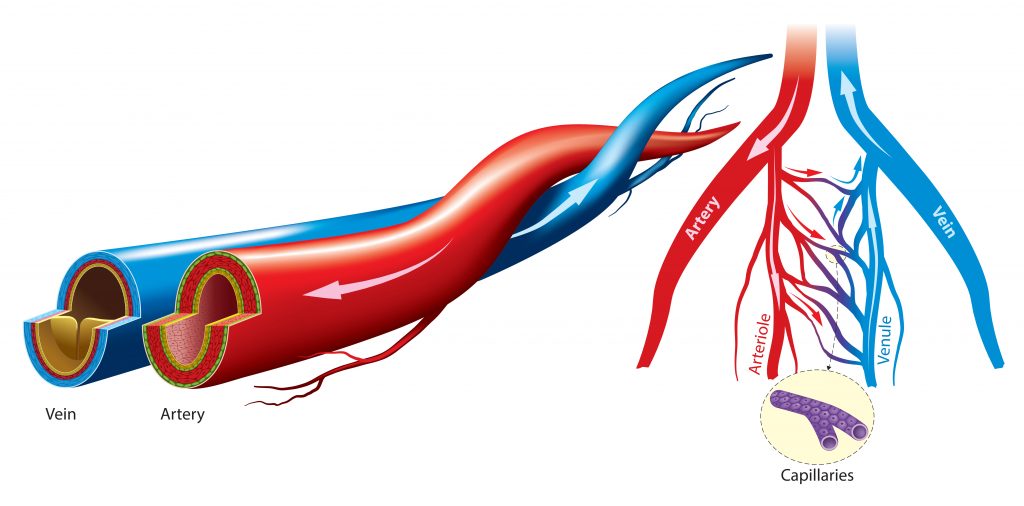The Effect of Smoking and Second Hand Smoke on Cardiac Health
Cigarette smoking causes damage to almost every organ of the body and reduces the overall health of smokers in general. No matter how or in what form you smoke it, tobacco is injurious to your health. All the substances present in tobacco products such as tar, nicotine, acetone, and carbon monoxide are not safe for your body. When you inhale these substances, they not only affect your lungs but cause damage to your whole body.
Smoking can be the cause of short-term as well as long-term complications in your body. Cigarettes contain up to 600 ingredients most of which are also present in hookahs and cigars. Whenever you light a cigarette or a cigar, these ingredients burn thus generating more than 7,000 chemicals. These are poisonous chemicals with nearly 69 of them linked to cancer.
Research indicates that smoking is the most common preventable cause of death today. Although the effects of smoking may not be felt immediately, the damage and complications can last for many years. These complications on various body parts are discussed below:
Brain
Cigarettes contain nicotine which is highly addictive. It is very hard to beat nicotine addiction as it changes your brain. The brain develops additional nicotine receptors that help accommodate large doses of nicotine from tobacco. When you stop smoking your brain stops getting nicotine to which it has become accustomed thus resulting in nicotine withdrawal. This may cause changes in behavior such as feeling irritable, anxious or experience strong cravings for nicotine
Smokers have a higher chance of having a stroke than people who do not smoke. As a matter of fact, smoking greatly increases the risk of stroke in smokers which can lead to brain damage and death.
Smoking can also be the root cause of developing a brain aneurysm which could rupture or burst leading to an extremely serious condition called subarachnoid hemorrhage. This condition is a type of stroke which could result in brain damage and death.

Lungs
Smokers experience inflammation in the tissue and small airways of the lungs. This can result in wheezing, shortness of breath, and tightness in the chest. Inflammation over a long period of time builds up scar tissue. This causes physical changes to your lungs and airways thus making it difficult to breathe. Prolonged lung irritation could develop into a chronic cough with mucus.
There are tiny air sacs, or alveoli, in our lungs that allow oxygen exchange. Smoking destroys alveoli thus causing permanent damage to your lungs. This destruction of alveoli could result in emphysema which is a disease that causes severe shortness of breath and even death.
There are tiny brush-like hairs in our airways called cilia. Their function is to sweep out mucus and dirt thus keeping the lungs clear. Smoking temporarily paralyzes cilia and even kills it thus leaving you vulnerable to infection. Smokers are more likely to experience respiratory infections and colds than non-smokers.
DNA
Our body is made up of cells that contain the genetic material of every individual. This genetic material or DNA works as an instruction manual for cell function and growth. Smoking causes damage to our DNA by destroying the balance between growth and operation thus resulting in a cancer tumor. The body tries to repair this damage to cells, but continuous smoking wears down the repair system thus leading to cancer especially lung cancer. Tobacco has been noted to be the cause of one-third of all cancer deaths.

Heart
Smoking also causes an increase in blood pressure thus putting stress on your heart. Over time this stress weakens the heart making it difficult for the heart to pump blood effectively. The carbon monoxide present in cigarette smoke also causes a lack of oxygen which makes the heart work even harder. These elements increase the risk of heart disease particularly heart attacks.
Another effect of smoking that is very dangerous for your body is that it makes the blood sticky and thick. The thicker the blood gets, the more difficult it becomes for the heart to pump the blood around the body.
Smoking also increases the unhealthy fats and cholesterol circulating in the body which leads to increased unhealthy fatty deposits. Prolonged smoking causes accumulation of fats, cholesterol, and other debris on the walls of the arteries. This buildup constricts the arteries and blocks the blood flow to various parts of the body. Blocked blood flow to the legs could cause amputation of feet or toes whereas reduced blood supply to the heart or brain could result in a stroke or heart attack.
What is secondhand smoke and how does it affect non-smokers?
Secondhand smoke refers to the smoke from a burning cigarette and the smoke exhaled by the smoker. If you are a non-smoker but are subjected to secondhand smoke regularly, then your body will also absorb nicotine and other harmful substances. The toxic substances released when a cigarette is lit linger in the air for almost four hours. Breathing in these particles for even a few minutes can cause harm to your body.
Some dangerous effects of second-hand smoking include:
- Buildup of fat deposits in blood vessels
- Excessive blood clotting
- Hardening of aorta
- Irregular heartbeat (arrhythmia)
- Increased risk of heart attack and stroke
- Lung cancer
- Lung diseases including asthma, chronic bronchitis, COPD, and emphysema
- Increased risk of respiratory and sinus infections
Effects of secondhand smoke on the heart
Secondary smoke increases the risk of heart diseases by more than 30%. Breathing in secondhand smoke can cause blood clotting which may block an artery thus resulting in a heart attack. It also causes endothelial dysfunction, a condition that is the root cause of many forms of cardiovascular diseases. The harmful substances present in secondhand smoke causes inflammation of the arteries thus increasing the risk of chest pains that can lead to a heart attack.
Conclusion
Quitting smoking is difficult, but professional help and a strong dedication can make it possible. Since smoking causes harm to every body system discontinuing it is vital to enjoying a healthier and longer life.





